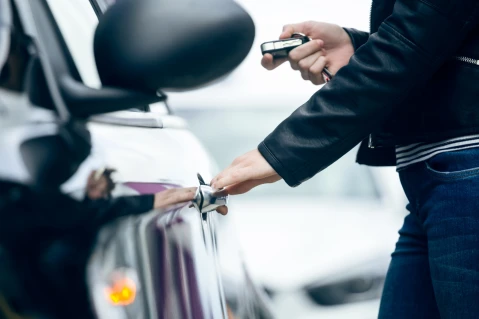Buying a used car can feel like navigating a maze. For many consumers, questions like what is a lemon car often arise only after problems begin. While some protections apply to only new vehicles, others extend further — but not everyone knows where those lines are drawn. When issues surface, the process of trying to replace a defective car can quickly turn into frustration. From trucks to sedans, unexpected repairs pile up. This is particularly relevant when the warranty doesn’t offer full coverage. Being aware of your rights before signing the paperwork helps avoid costly surprises and puts the power back in the hands of the buyer.
Definition of a Lemon Car
A lemon car is one that develops persistent issues shortly after delivery. Such a vehicle often leaving drivers with more headaches than miles. The term might conjure up images of clunkers from decades past. At the same time, the reality today is more complex. If a new car straight from the dealership shaws signs of defects, it’s qualified as a lemon. Common examples include engine stalling, faulty brakes, or electrical system failures.
The confusion deepens when considering a certified pre-owned car, which is typically marketed as a safer bet. Despite undergoing inspections, these vehicles aren’t immune to hidden flaws. Some drivers deal with minor problems. These include broken lights or squeaky doors. At the same time, others face major defects that affect safety and reliability. Recognizing the difference early is essential. When a vehicle’s outward condition masks deeper mechanical or structural issues, this is an obvious red flag.
What Qualifies a Car as a Lemon?

U.S. state laws dictate some specific rules. New motor vehicles may be labeled as lemons if they suffer from a defect that is substantially impaired and cannot be fixed after a reasonable number of attempts. If the authorized dealer repeatedly fails to correct the same defect, the vehicle may qualify under lemon laws.
“Reasonable Repair Attempts” Explained
Wondering how to know if your car is a lemon? It usually comes down to the number of times it’s been in for service for the same issue. If an authorized dealership has tried several times to fix a problem and failed—or if the car spent a prolonged time in the shop—this may meet the legal threshold. Each state sets its own definition of what counts as a “reasonable number” of repair attempts.
Substantial Defects vs. Minor Issues
It's important to distinguish between serious flaws and inconveniences that don’t meet the legal definition.
| Substantial Defects | Minor Issues |
| Brake system failure | Loose trim or emblems |
| Transmission not shifting properly | Noisy A/C fan |
| Steering that pulls or locks | Bluetooth pairing problems |
| Electrical faults affecting drivability | Malfunctioning dome light |
Lemon Laws in the U.S.
Car lemon law regulations vary by state, but the goal remains the same: to protect consumers when a vehicle is unable to meet basic quality and performance standards. Understanding what constitutes a lemon law is essential, especially since even a harmless accident with no damage can complicate a future lemon title issue if the vehicle becomes a subject of return or refund.
Covered vehicle types typically include:
- Street-legal personal vehicles intended for regular use.
- Vans and trucks used for personal transportation.
- Vehicles under original manufacturer warranty.
- Cars involved in warranty-covered repairs for the same defect.
- Vehicles out of service for extended periods due to faults.
How Lemon Laws Apply to Leased Vehicles
Many drivers are surprised to learn that the lemon law covers leased cars in most states, not just vehicles purchased outright. While the concept may vary slightly depending on where you live, the protection does exist for lessees dealing with recurring defects. If a leased model repeatedly fails to function properly and the defect cannot be fixed within a reasonable time, it may be classified as a lemon vehicle. That means the same rights can pass to you as they would to a buyer.
The Hidden Side of Lemon Cars That Dealers Won’t Tell You

When problems start piling up, many drivers simply think, my car is a lemon, without realizing what that really means. Dealers often avoid discussing how warranty repairs can fall short or how warranty terms might limit your options. Issues affecting safety may still be brushed aside, especially in vans or trucks that pass basic inspections. What you’re not told could cost you time, money, and confidence on the road.
Even when the dealer admits there’s a serious defect, the purchase price doesn’t always reflect the real loss. Buyers are rarely informed about their right to a replacement vehicle or refund in qualifying cases. Some dealerships hope drivers stay unaware of state laws or assume problems will resolve later. As a result, many stuck with lemon cars never take action, thinking repairs are their only option when better solutions exist.
Are Lemon Buybacks Ever a Good Deal?
Buying a defective vehicle that was returned under lemon law may sound like a bad idea, but in some cases, it can work in your favor. When manufacturers repair and resell these cars as lemon buybacks, they often include extended coverage or assistance packages to attract buyers.
- Lemon buybacks can be a smart deal if:
- You're looking for a low-cost option.
- You understand the vehicle’s full repair history.
- The price reflects the vehicle’s past issues.
- You're comparing it to a pricier new vehicle.
- The warranty is active and clearly outlines what’s covered.
- You’re comfortable with the idea of owning a former return.
Can a VIN Check Help You Avoid a Lemon?
A quick search using a VIN decoder can help consumers spot past issues that might not be obvious during a test drive. If the vehicle history report shows repeated repairs or a lemon history reported, that’s a strong signal the car may have been substantially impaired and returned under car lemon law.
Vehicle History Report Red Flags
Look out for these warning signs before committing to a purchase:
| Red Flag | Why It Matters |
| Lemon history detected | Indicates legal return due to major defect |
| Repeated repairs for same issue | Suggests an ongoing, unresolved problem |
| Frequent service visits | Could mean unreliable performance |
| Multiple owners in short time | May reflect dissatisfaction with the vehicle |
| Gaps in service history | Raises concerns about maintenance neglect |
What to Do If You Think You Bought a Lemon

If you suspect the car you bought is reported as lemon, act quickly to determine your rights and gather evidence to prove your case.
Start by taking these steps:
- Review the bill of sale for a car and check for any disclaimers
- Gather records of all repair attempts and service dates
- Check if the vehicle is still under manufacturer's warranty
- Contact the dealer or manufacturer and request written responses
- File a complaint with your state’s motor vehicles department
- Avoid paying more for additional repairs without legal advice
- Seek help from an attorney or consumer protection agency before you pay more out of pocket
Arbitration vs. Lawsuit When You Bought a Lemon
Consumers discovering they’ve ended up with a lemon often face a difficult choice. They need to either pursue arbitration or take the matter to court. Arbitration is faster and typically less expensive. Thus, it’s more attractive for a quicker resolution. Some states, like California, require arbitration before filing a lawsuit under their lemon law. However, arbitration decisions may not always favor the buyer. Additionally, appeal options are limited.
In contrast, going to court can lead to stronger legal remedies. These include a refund of the purchase price or even additional compensation. The legal process takes longer. Nonetheless, it may be the better route if the vehicle presents ongoing safety risks or the manufacturer refuses to cooperate. Understanding both paths is essential for car owners. They can make informed decisions about how to proceed when their car qualifies as a lemon under state or federal protection laws.
Further reading
Summary
Lemon laws protect drivers from cars that compromise safety or fail to meet basic standards after repeated repair attempts. You may still have a question: “How to know if your car is a lemon?” Grasping this can save you stress, time, and money. Regular service visits and communication with the manufacturer are essential if issues arise. Sometimes, you may count on a refund or a full replacement. However, you need to act quickly. Staying informed about the warning signs early gives you the upper hand when dealing with persistent vehicle defects.
Frequently Asked Questions
Yes. Nonetheless, certain conditions should be considered. You may have grounds for legal action, for example, when the car was sold with a written warranty, and the dealer failed to fix a significant defect after multiple attempts.
A manufacturer buyback usually means the vehicle was once classified as a lemon. Under most state laws, when a car is repurchased due to qualifying defects and repair failures, it becomes a buyback. These vehicles are typically required to carry a branded title disclosing their lemon status. However, some buybacks are made voluntarily before a formal lemon classification.
Some states are well-known for having strong consumer protection laws. This concerns California, New Jersey, and New York. California's lemon law, in particular, offers broader coverage. Its arbitration processes are faster than in many other states.
It depends on the state. Some lemon laws cover motorcycles and recreational vehicles. Others, in turn, exclude them entirely.
Not necessarily. Luxury cars often have more complex electronics and features that can fail. However, their manufacturers also tend to offer better warranties and service networks. A defect rate is not higher by default — it depends on the brand and model.







